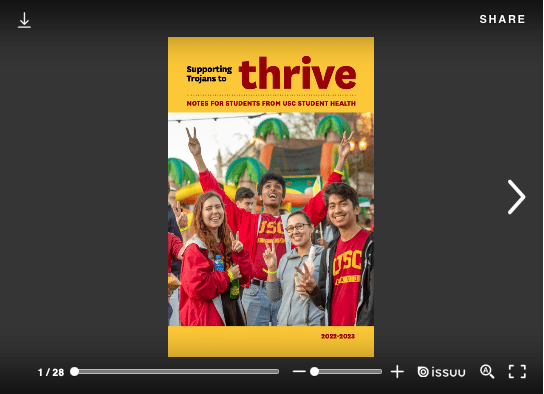Sept. 1, 2022—CDC Director Rochelle P. Walensky, M.D., M.P.H., endorsed the CDC Advisory Committee on Immunization Practices’ (ACIP) recommendations for use of updated COVID-19 boosters from Pfizer-BioNTech for people ages 12 years and older and from Moderna for people ages 18 years and older.
Updated COVID-19 boosters add Omicron BA.4 and BA.5 spike protein components to the current vaccine composition, helping to restore protection that has waned since previous vaccination by targeting variants that are more transmissible and immune-evading. Read the full CDC announcement.
USC Pharmacies has temporarily suspended its booster clinic with the previous booster formulations. Pending new clinical guidance, booster vaccination will resume with supplies of the new bivalent formulations….Continue Reading CDC makes recommendation on bivalent COVID-19 boosters
 It’s here! The 2022-2023 Thrive Guide for USC students has articles, news, and guide to services for all USC students. Welcome to the new academic year!
It’s here! The 2022-2023 Thrive Guide for USC students has articles, news, and guide to services for all USC students. Welcome to the new academic year!